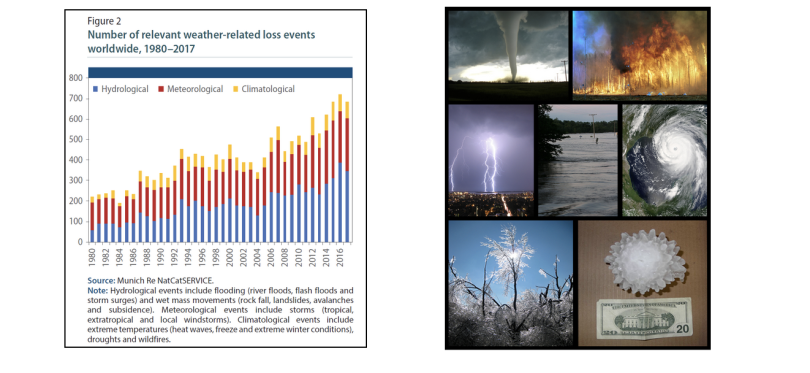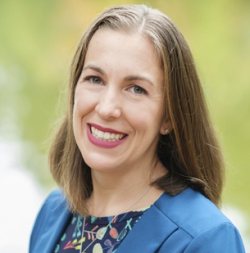Lectures & Lecturers
Prof. Colin Price
 9:30am - 10:30am - The Impact of Climate Change on Natural Disasters Around the World- Prof. Colin Price
9:30am - 10:30am - The Impact of Climate Change on Natural Disasters Around the World- Prof. Colin Price
Prof. Colin Price

Natural disasters related to the weather have increased by 400% in the last 40 years. In addition to changes in the climate and extreme weather, there have also been changes in population exposure, and the vulnerability of countries to natural hazards. We will discuss the impacts of climate change on heat waves, droughts and wildfires, while also considering storms, floods and tropical storms. These changes are impacting the low-income countries the most. And as a result we are seeing a rise in climate refugees.
Prof. Colin Price

Prof. Colin Price

ASsaf

10:30am - 11:30am -
Prediction of Climate Extremes Using Artificial Intelligence - Assaf Shmuel
ASsaf

Climate extremes such as wildfires and floods pose serious risks to both human populations and wildlife. For instance, the recent wildfire in Los Angeles caused damage estimated at over $200 billion and dozens of fatalities. Accurately predicting such events is not only critical for advancing scientific understanding but also serves as a vital tool for issuing early warnings and saving lives. A striking example comes from Bangladesh: a cyclone in 1970, with no early warning system in place, led to the deaths of over 300,000 people. In contrast, a cyclone of similar magnitude in 2020 resulted in only 26 fatalities – thanks to timely warnings and improved preparedness.
However, predicting extreme climate events remains a major challenge due to the complex, non-linear interactions among numerous risk factors, including meteorological conditions, vegetation, topography, and more. In this lecture, we will explore how Artificial Intelligence (AI) can help address this challenge. We will examine a range of data-driven models – from Linear Regression to Random Forests and Neural Networks – and discuss their applications in predicting climate extremes.
Special attention will be given to wildfires. We will explore how AI can assist in their detection, forecasting, and even prevention. Additionally, we will highlight the role of eXplainable Artificial Intelligence (XAI) in identifying the most influential risk factors, thereby using predictive models not only for alerts but also for gaining deeper insights into the underlying causes of these devastating events.
Jonathan Winter
 1:00pm - 2:00pm - Climate change and global agricultural production: Impacts and adaptation strategies - Prof. Jonathan Winter
1:00pm - 2:00pm - Climate change and global agricultural production: Impacts and adaptation strategies - Prof. Jonathan Winter
Jonathan Winter

Global food demand is expected increase 70% by 2050 due to population growth and increased meat consumption; rising competition for land, water, and energy will necessitate improved agricultural practices to minimize environmental effects; and climate change threatens to disrupt crop production globally and disproportionately reduce food security in regions that already have high undernourishment. This session will focus on (1) climate change impacts on global agricultural production of staple crops, (2) adaptation strategies at local to global scales, and (3) the potential to increase agricultural production through irrigation.
Pries
 2:00pm - 3pm - Soils: Climate Friend or Foe? - Prof. Caitlin Hicks Pries
2:00pm - 3pm - Soils: Climate Friend or Foe? - Prof. Caitlin Hicks Pries
Pries

Soil organic matter stores over three times as much carbon as the atmosphere. As our climate warms, microbial decomposition of this organic matter can speed up, which may reduce the amount of carbon stored in soils and increase the amount of CO2 respired by microbes into the atmosphere where it acts as a greenhouse gas. This process could be a reinforcing feedback to climate change. Despite concerns about increased decomposition, soil is simultaneously receiving much attention as a potential climate change mitigation strategy. Some scientists have posited that by managing soil differently, we could remove CO2 from the atmosphere at a rate equivalent to annual fossil fuel emissions. In this session, we will discuss 1) how soil carbon is responding to climate change; 2) how soil carbon responds to management on agricultural land; and 3) models that aim to project the response of soil carbon to future global change.
Prof. Nili Harnik
 3:30pm - 4:30pm - The Journey of Water Molecules in the Atmosphere and How it is Changing Under Global Warming - Prof. Nili Harnik
3:30pm - 4:30pm - The Journey of Water Molecules in the Atmosphere and How it is Changing Under Global Warming - Prof. Nili Harnik
Prof. Nili Harnik

An increase in the amount of water vapor in the atmosphere is one of the robust implications of global warming. A corresponding increase in the global amount of rain is expected, though it can't be as strong as the increase in water vapor due to energetic constraints. Local changes in the hydrological cycle are much less constrained and thus much harder to predict. We will discuss the global hydrological cycle, understand the contributions of different global circulation components, and the current understanding of changes in these components due to global warming.